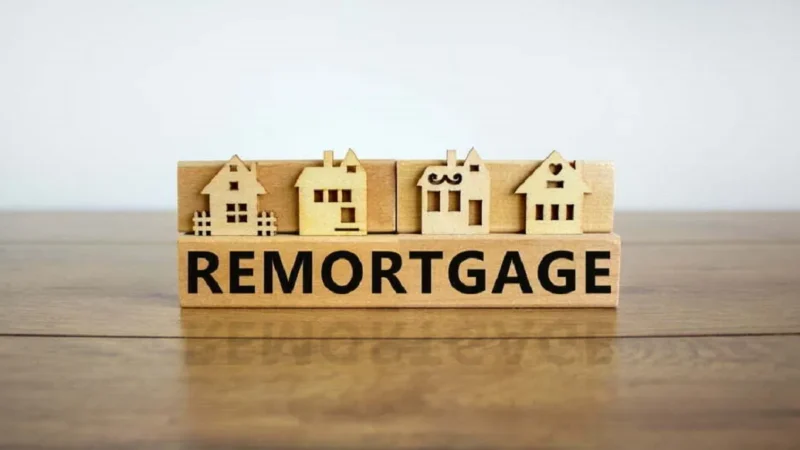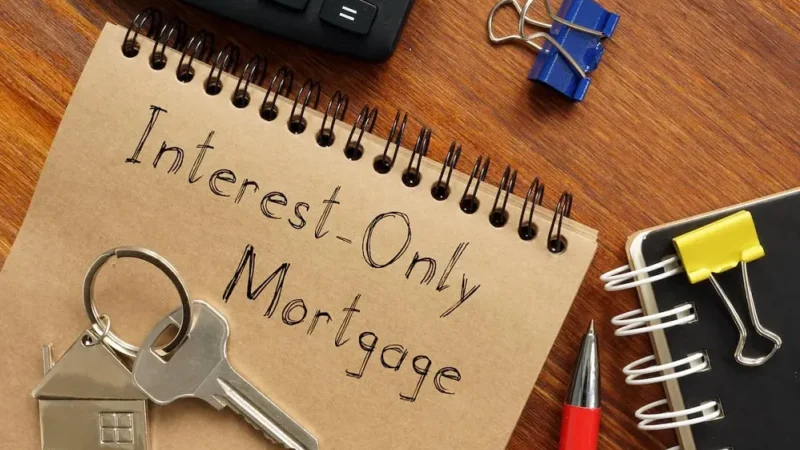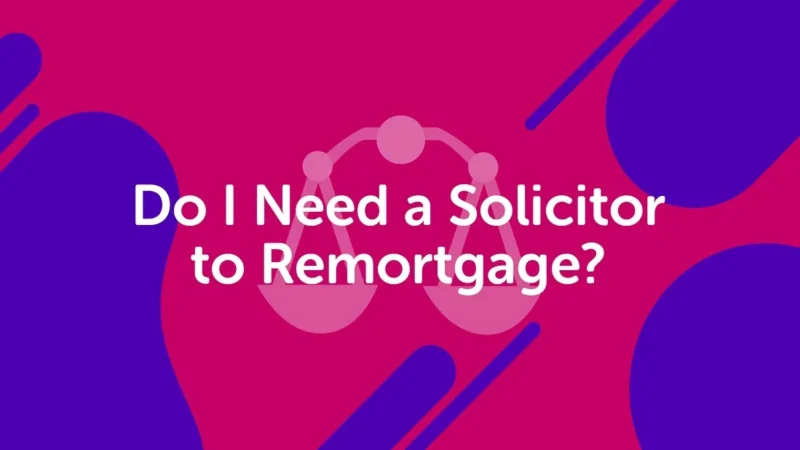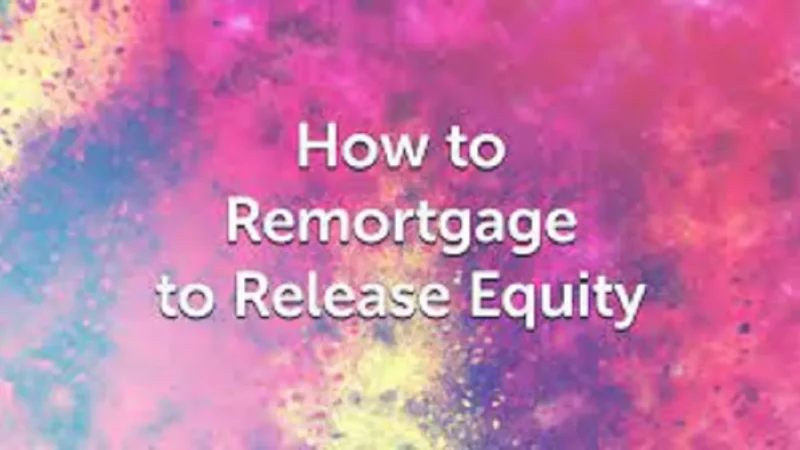What Happens At The End Of An Interest Only Mortgage UK?
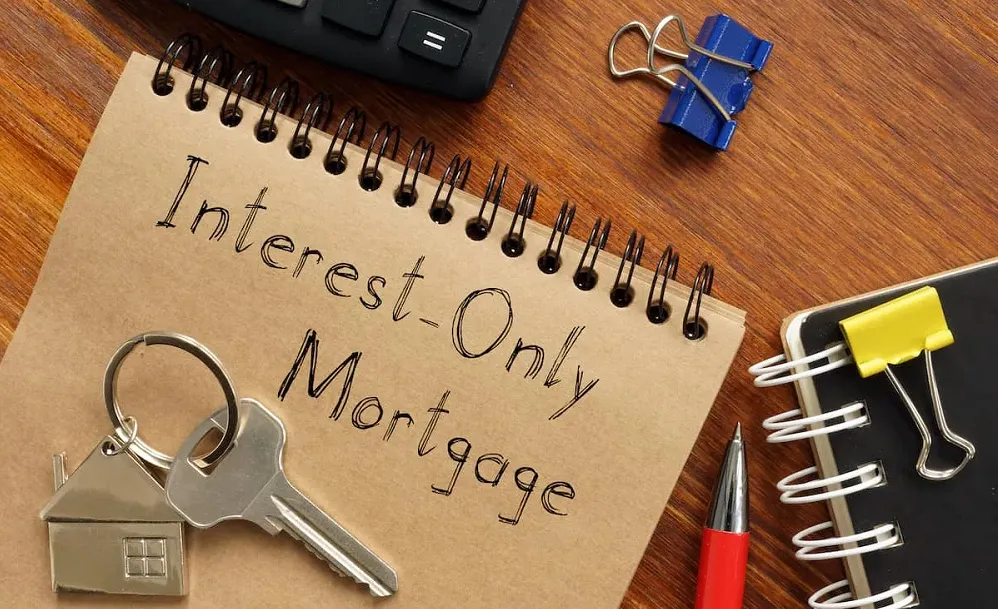
Table of Contents
ToggleWhat to do when interest only mortgage ends?
When an interest-only mortgage ends, the borrower is expected to pay back, in full, the amount they originally borrowed. Until this point, this type of mortgage means only the interest has been paid off each month, leaving the total loan repayment until the end.
Here are the options available to a borrower at the end of an interest-only mortgage:
Repay the loan in full
Here are some things to consider when repaying an interest-only mortgage in full:
- How much money do you need to repay the loan?You can calculate this by multiplying the outstanding balance of your mortgage by the interest rate.
- Can you afford to repay the loan in full?This will depend on your income and savings.
- Will you have to pay any early repayment charges?Some lenders charge early repayment charges if you repay your mortgage early. These charges can be significant, so you need to factor them into your decision.
- What are the tax implications of repaying your mortgage early?If you repay your mortgage early, you may have to pay capital gains tax on any profit you make.
If you decide to repay your interest-only mortgage in full, you can do this by:
- Making a lump sum payment to your lender.This is the most straightforward option, but it may not be feasible if you do not have enough money saved up.
- Remortgaging to a repayment mortgage.This can be a good option if you have built up enough equity in your property. You can use the proceeds of the new mortgage to repay the interest-only mortgage in full.
- Selling your home.If you have built up enough equity in your property, you may be able to sell your home and use the proceeds to repay the interest-only mortgage in full.
Take out another interest-only mortgage
Taking out another interest-only mortgage is an option if you need more equity in your property to repay the interest-only mortgage in full. However, it is essential to note that interest-only mortgages are becoming increasingly difficult to obtain, and their interest rates are typically higher than on repayment mortgages.
Here are some things to consider when taking out another interest-only mortgage:
- Can you afford the repayments?Interest-only mortgages typically have higher interest rates than repayment mortgages, so you must ensure you can afford the repayments.
- Will you have to pay any early repayment charges?Some lenders charge early repayment charges if you repay your mortgage early. These charges can be significant, so you need to factor them into your decision.
- What are the tax implications of taking out another interest-only mortgage?If you take out another interest-only mortgage, you may have to pay capital gains tax on any profit you make.
Here are some additional tips for taking out another interest-only mortgage:
- Shop around for the best interest rate.Interest rates on interest-only mortgages can vary significantly, so shopping around and comparing quotes from different lenders is essential.
- Get a fixed-rate mortgage.A fixed-rate mortgage will give you peace of mind knowing that your interest rate will not change for a period.
- Consider a capped-rate mortgage.A capped-rate mortgage will cap your interest rate at a certain level, even if interest rates rise.
- Take out a smaller mortgage.Take out a smaller mortgage to make your monthly repayments more affordable.
- Consider a repayment mortgage.If you can afford it, consider taking out a repayment mortgage instead of an interest-only mortgage. This will allow you to start repaying the capital and the interest, which will reduce the debt you owe over time.
It is important to remember that taking out another interest-only mortgage can be a risky option, as you will be accumulating more debt. Ensuring you can afford the repayments and understanding the risks involved is essential.
Equity release
Equity release is a loan that allows you to access the equity in your property without selling it. This can be a good option if you cannot repay an interest-only mortgage in full but want to stay home. However, it is essential to note that equity release can be expensive and affect your inheritance tax liability.
There are two main types of equity release:
- Home reversion:This type of equity release involves selling part of your home to a lender in return for a lump sum payment. You will still own the rest of your home, but you can no longer sell it without the lender’s permission.
- Lifetime mortgage:This type of equity release allows you to borrow a lump sum or a regular income from your home. You will still own your home, but you will have to pay interest on the loan until you die or move into long-term care.
Equity release can be a good option for some people, but it is essential to understand the risks involved before you commit to anything. Here are some of the risks of equity release:
- You may have to pay high interest rates.The interest rates on equity release loans can be high, so you must ensure you can afford the repayments.
- You may lose your home if you cannot make the repayments.If you cannot repay your equity release loan, you may have to sell your home to pay off the debt.
- You may have to pay inheritance tax on the money you borrow.If you borrow money from an equity release scheme, you may have to pay inheritance tax on the amount you borrow when you die.
Sell your home
Selling your home is a big decision, but it may be the best option if you cannot repay your interest-only mortgage in full. Researching and getting professional advice before you sell your home is vital.
Here are some things to consider when selling your home:
- How much is your home worth?You can get a rough estimate of your home’s value by using an online valuation tool. However, it is important to get a professional valuation to get an accurate estimate.
- How much do you owe on your mortgage?You can determine how much you owe on your mortgage by contacting your lender.
- What are the costs of selling your home?Several costs are involved in selling your home, such as estate agent fees, legal fees, and stamp duty. You need to factor these costs into your decision.
- Where will you live after you sell your home?If you sell your home to repay your mortgage, you must find somewhere else to live. Consider renting a property or buying a smaller home.
If you decide to sell your home, you should speak to a financial advisor for professional advice on the best way.
Here are some additional tips for selling your home:
- Get your home ready for sale.This includes decluttering, making repairs, and staging your home.
- Get a good estate agent.A good estate agent can market your home effectively and get you the best possible price.
- Price your home competitively.It would be best if you priced your home to attract buyers. If you price it too high, you may not get any offers.
- Be prepared to negotiate.Buyers will often try to negotiate the price of your home. You must be prepared to deal to get the best possible price.
- Have a backup plan.If you cannot sell your home, consider other options, such as remortgage or equity release.
Selling your home can be daunting, but it is essential to remember that it is a process. Following these tips can make the process as smooth as possible.

